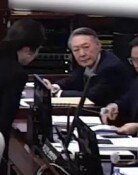Globalization of South Korea’s literature begins now
Globalization of South Korea’s literature begins now
Posted October. 12, 2024 09:29,
Updated October. 12, 2024 09:29
Novelist Han Kang became the first South Korean to win the Nobel Prize in Literature on Thursday, showing that South Korean literature is no longer on the fringes of the global literary scene, but in the center of it. The U.K.’s Guardian called Han “a writer with a voice of vital importance and a remarkable humanity,” while the Economist likened her to “South Korea’s Kafka.” Han’s books are enjoying massive popularity in bookstores. In South Korea, at least 200,000 copies of her books were sold on Friday alone, making it difficult to keep track of sales due to the rush of orders. In the U.S., Japan, Germany, France, and other countries, Han’s works are also sweeping the bestseller lists and shelves.
This award for Han is a blessing for South Korean literature 102 years after the publication of “The Cloud Dream of the Nine” in English in the U.K. in 1922, which introduced South Korean literature overseas and is the result of cumulative efforts. The translation support program, which was spurred by the Nobel Prize in Literature awarded to a 70s Japanese writer, Yasunari Kawabata, has continued until today. As a result, since the 1990s, works by Yi Cheong-jun, Lee Seung-u, Hwang Sok-yong, Shin Kyung-sook, Cho Nam-ju, Jeong Yu-jeong, Kim Hye-soon, and others have been published overseas, gaining favorable local responses and winning major literary awards. More than 200 South Korean works are translated and published annually, some selling hundreds of thousands of copies. Readers around the world are listening to the stories of South Korean writers.
The globalization of South Korea’s literature is expected to continue. As the boundaries between genres and nationalities continue to collapse, its reach will grow even wider. “Beasts of a Little Land,” which was selected as the winner of the Foreign Literature Award of the Yasnaya Polyana Book Award of Russia on Thursday, is a novel written in English by Korean-American author Juhea Kim. Still, it is categorized as South Korean literature in a broad sense. With the increasing number of overseas readers who deeply understand South Korean literature, which is highly valued as source content, South Korean culture will be more at the center of the world.
This is why we should utilize Han’s award as a new opportunity. However, the translator training program budget of the Literature Translation Institute of Korea, which has played a vital role in the overseas expansion of South Korean literature by supporting the translation of Han’s works into 28 languages, has been cut to about 2.7 billion won this year, down from 3.9 billion won last year, and will be cut even further next year. The South Korean government will need to expand the base of native translators and research publishing markets by languages to help the country’s literature develop a tailored expansion strategy.



![[단독]김경 “1억원 줄때, 강선우도 함께 있었다” 자수서](https://dimg.donga.com/c/138/175/90/1/wps/NEWS/IMAGE/2026/01/14/133148772.5.jpg)


![반찬통 착색 고민 끝…‘두부용기’ 버리지 말고 이렇게 쓰세요 [알쓸톡]](https://dimg.donga.com/c/138/175/90/1/wps/NEWS/IMAGE/2026/01/09/133126593.3.png)
